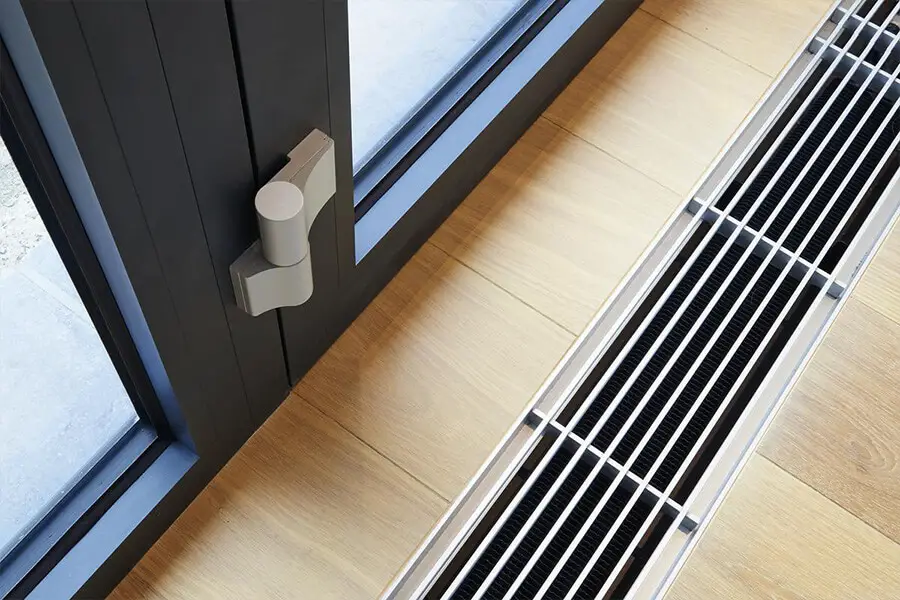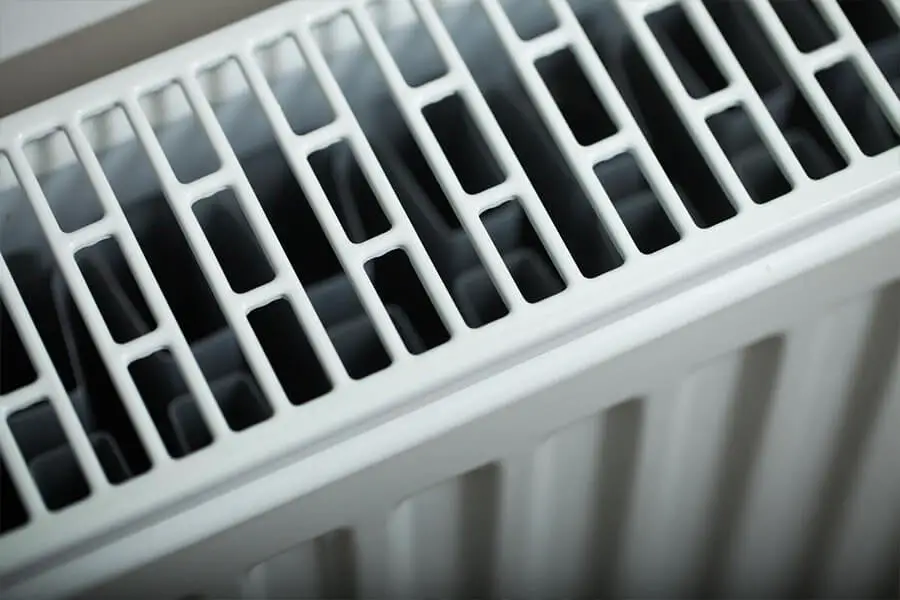Key Takeaway:
Baseboard heaters provide efficient warmth, but when they turn on unexpectedly, it can be perplexing and potentially hazardous. This in-depth guide explores causes, safety concerns, and troubleshooting methods, ensuring your heating system operates optimally. Prioritize safety and regain control for a cozy, worry-free home.
Introduction:
Baseboard heaters are popular and efficient for heating homes, offices, and other spaces. They offer a localized and energy-efficient heating solution that is particularly well-suited for frequently occupied rooms. However, a perplexing issue that some individuals encounter is when their baseboard heater turns on by itself, seemingly defying the logic of temperature control and user settings. This phenomenon can be frustrating and potentially problematic, prompting homeowners to seek answers and solutions. In this comprehensive exploration, we delve into the possible causes behind baseboard heaters turning on spontaneously, discuss potential safety concerns, and offer guidance on troubleshooting and rectifying the issue.
The Basics Of Baseboard Heaters
 Before delving into the Reasons behind unexpected heater activation, it’s essential to understand the basic functioning of baseboard heaters.
Before delving into the Reasons behind unexpected heater activation, it’s essential to understand the basic functioning of baseboard heaters.
Baseboard heaters operate on a simple principle: they use electrical resistance to generate heat. An electric current flows through a metal heating element, which produces heat that radiates into the room. To regulate the temperature, baseboard heaters are equipped with thermostats, which monitor the ambient temperature and turn the heating element on or off to maintain a consistent desired temperature.
Causes Of Baseboard Heaters Turning On By Themselves
Thermostat Malfunction: A malfunctioning thermostat is a common culprit behind baseboard heaters turning on spontaneously. If the thermostat’s temperature sensor is faulty or improperly calibrated, it might erroneously perceive that the room is colder than it is, causing the heater to activate unnecessarily.
Electrical Issues: Electrical anomalies, such as short circuits or voltage fluctuations, can lead to erratic heater behavior. Sometimes, these issues can result in the heater receiving power even when it shouldn’t be operational.
Thermostat Placement: The positioning of the thermostat within the room can impact its accuracy. If the thermostat is located in a spot exposed to direct sunlight, drafts, or other heat sources, it may provide inaccurate readings, causing the heater to turn on when it’s not needed.
Radio Frequency Interference: Baseboard heaters with wireless or remote-controlled thermostats can be susceptible to interference from other electronic devices emitting radio frequencies. This interference might trigger unintended heater activation.
Programming Errors: Programmable thermostats allow users to set schedules for when the heater should be active. Programming errors or glitches in the thermostat’s software could result in the heater turning on at unexpected times.
External Factors: Certain external factors, such as sudden drops in temperature, could cause a legitimate need for the heater to activate. However, if the heater’s response seems disproportionate to the temperature change, there may be an underlying issue.
Baseboard Heater: Safety Considerations
While a baseboard heater turning on spontaneously might seem like a minor inconvenience, safety should always be a top priority. A malfunctioning heater can pose risks such as:
- Fire Hazard: If a baseboard heater turns on without user intervention and remains active for extended periods, it could overheat and potentially lead to a fire.
- Energy Consumption: Unintended heater activation leads to higher energy consumption, translating to increased utility bills and unnecessary strain on the electrical system.
- Component Wear and Tear: Continuous and unexpected cycling of the heating element can result in premature wear and tear, reducing the overall lifespan of the heater.
Troubleshooting Of Base Board Heaters And Their Solutions
 Check Thermostat Settings: Ensure the thermostat settings are accurate and correctly programmed. If necessary, recalibrate or replace the thermostat.
Check Thermostat Settings: Ensure the thermostat settings are accurate and correctly programmed. If necessary, recalibrate or replace the thermostat.
Inspect Wiring: Examine the wiring connections for signs of damage, loose connections, or exposed wires. If any issues are identified, consult an electrician to repair or replace the wiring.
Consider Interference: If the heater is equipped with a wireless thermostat, try isolating potential sources of radio frequency interference. This might involve relocating other electronic devices or adjusting their settings.
Temperature Sensor Calibration: If the thermostat’s temperature sensor is adjustable, calibrate it to provide accurate temperature readings. This might involve referring to the manufacturer’s instructions.
Consult a Professional: If troubleshooting efforts prove ineffective or if you’re uncomfortable working with electrical components, it’s advisable to consult a licensed electrician. They can diagnose the issue and recommend appropriate solutions.
Prevention And Maintenance Of Electric Baseboard Heaters
Regular Inspections: Periodically inspect your baseboard heater and thermostat for any signs of wear, damage, or unusual behaviour.
Keep the Area Clear: Ensure the area around the baseboard heater is free from obstructions, as blocked airflow can impact its efficiency and lead to irregular heating patterns.
Upgrade to Smart Thermostats: Consider upgrading to a smart thermostat that offers advanced features, remote control options, and better accuracy in temperature readings.
Scheduled Maintenance: Schedule routine maintenance with a professional to clean the heater’s components, tighten electrical connections, and ensure optimal performance.
Frequently Asked Questions
Is The Spontaneous Activation Of My Baseboard Heater A Safety Concern?
Yes, it can be. Continuous and uncontrolled heater activation can potentially lead to overheating and become a fire hazard. It also increases energy consumption and accelerates component wear and tear.
Can External Factors Be Responsible For The Heater’s Unexpected Activation?
Yes, sudden temperature drops could trigger legitimate activation. However, if the heater’s response seems disproportionate to the temperature change, there might be underlying issues. Consider evaluating other potential factors, such as faulty components or malfunctioning sensors.
How Can I Prevent My Baseboard Heater From Turning On By Itself In The Future?
Regularly inspect your heater and thermostat for wear, damage, or irregular behaviour. Keep the area around the heater clear for proper airflow. Upgrading to a smart thermostat with remote control and accurate temperature readings can help. Additionally, scheduling routine maintenance with a professional will ensure your heater’s optimal performance and longevity.
Conclusion
The mystery of a baseboard heater turning on itself can be attributed to various factors, ranging from thermostat malfunctions to external influences. While the issue can be frustrating, it’s crucial to address it promptly to avoid safety hazards, energy wastage, and unnecessary wear and tear on the heater. By understanding the causes behind the phenomenon and following appropriate troubleshooting steps, homeowners can regain control over their heating systems and enjoy a comfortable and energy-efficient living environment.
The phenomenon of a baseboard heater turning on unexpectedly encompasses a spectrum of potential causes, from internal thermostat malfunctions to external environmental influences. Although initially perplexing, addressing this issue promptly is imperative to mitigate safety hazards, prevent energy wastage, and preserve the longevity of the heating system. By comprehending the underlying factors contributing to this occurrence and diligently applying appropriate troubleshooting measures, homeowners can reclaim command over their heating systems, ensuring a cozy, worry-free living environment characterized by optimal efficiency and peace of mind. Remember, prioritizing safety and regular maintenance routines remain paramount in fostering a comfortable and sustainable home heating solution.
Disclosure: We may get commissions for purchases made through links in this post.








